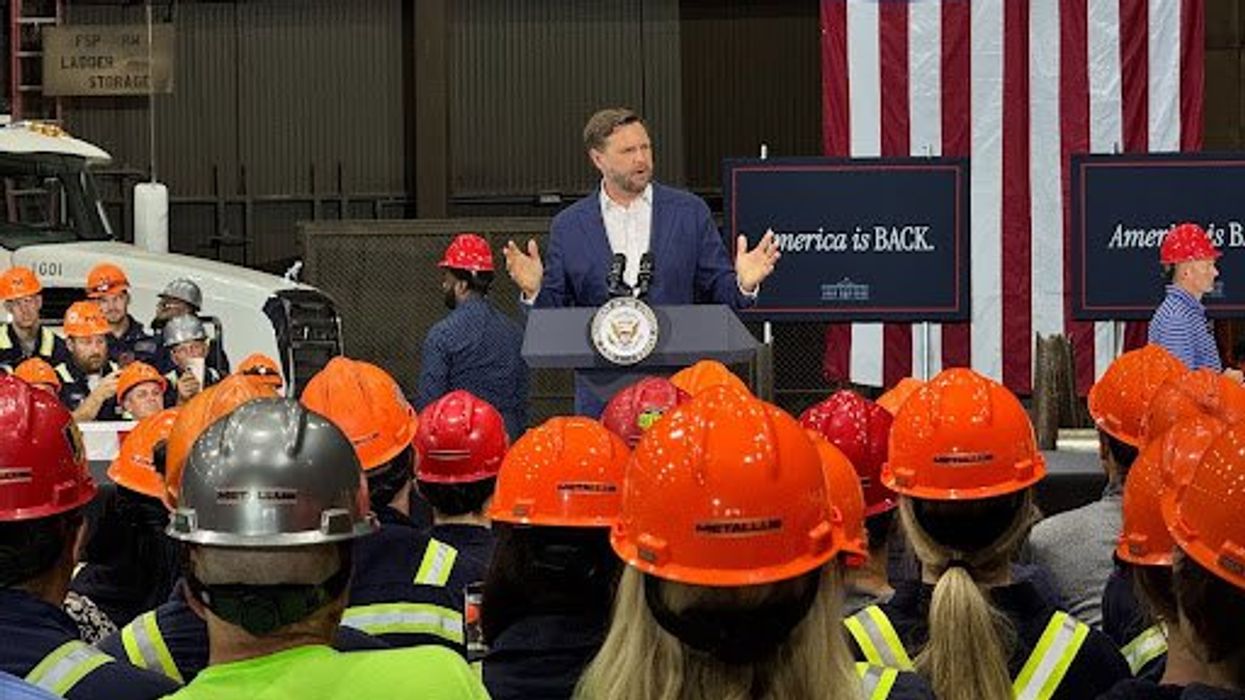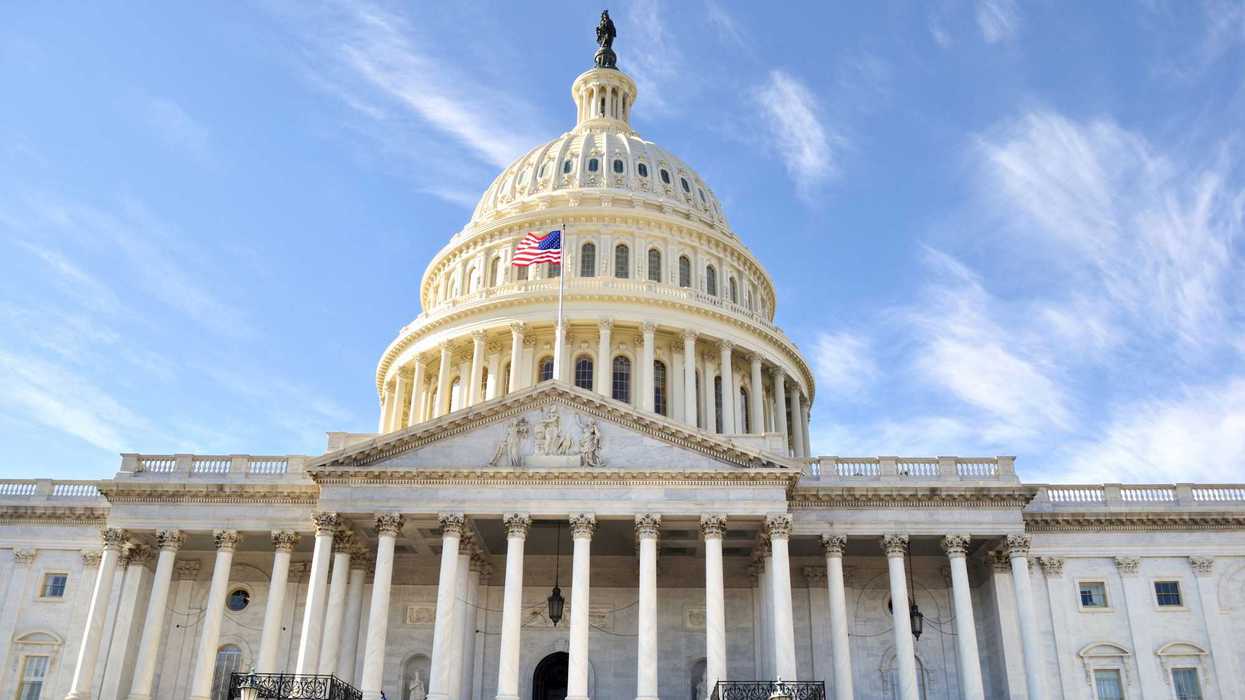CANTON, Ohio — Vice President JD Vance returned to Ohio on Monday to promote the Trump administration’s “Big Beautiful Bill,” casting it as a path to revive local industry and reward workers.
Inside the Metallus steel plant, Vance was welcomed by local officials and workers who embraced the tax and labor provisions. Outside, critics voiced concern over cuts to health care, education, and safety-net programs.
The event showed the Trump administration's efforts to use the vice president to increase support for the bill, over which public opinion is polarized.
The vice president also used the appearance to call out Democratic Rep. Emilia Sykes, highlighting her absence and lack of support for the legislation.
Speaking to about 100 steel workers in orange and red hard hats, Vance framed the legislation as a correction to decades of economic decline.
“For 40 years, while those great American factories closed their doors, we know what went right along with them. It was great American jobs, it was great American dignity and it was great American wages,” he said. “We are going to reward American companies for investing in American companies, not foreign workers for a change.”
For Mike Reed, a steelworker at Metallus who attended the event, the message resonated.
“He’s from the Rust Belt, where businesses like ours used to thrive, and hopefully we’ll be thriving again in the near future,” Reed said. “He worked his way up from a rough start, and I think he can identify with workers here more than other politicians can.”
Stark County Commissioner Richard Regula also praised the bill’s potential to retain workers and raise wages. “It’s an incentive,” Regula said. “We need workers, we need good wages.”
He highlighted the no-tax-on-overtime provision as a key way the bill would keep laborers rooted in Northeast Ohio, a priority Vance echoed in his remarks.
“When people grow up in Northeast Ohio, they ought to have the opportunity to stay in Northeast Ohio,” Vance said. “We’re going to fix that by building things in this country again.”
Outside the plant, a few dozen people protested, questioning the bill’s deeper impacts and Vance’s true intentions for choosing a steel plant in his home state to promote it.
Laura Hollins (left) and a volunteer (right) holding up a sign painting by Hollins saying “Shame on you,” while protesting in front of the Metallus, where Vice President JD Vance gave his speech on Monday, July 28, 2025. Angeles Ponpa/Medill News Service.
“I’m here because this is an opportunity to let our vice president know that we’re really unhappy with the way things are going,” said Lorraine Wilburn, a local business owner and an administrator for Action Together Stark, a pro-Democratic political group that’s part of Indivisible.
She described the venue choice as a “slap in the face” to steelworkers who have faced years of layoffs.
“We don’t agree with losing funding for education,” said Laura Hollis, also an administrator for Action Together Stark and a local Ohioan teacher. “We don’t agree with hurting working people, hurting children, hurting the elderly, and the most vulnerable in our society.”
Hollis said she protested outside the event to show her students how to engage peacefully in civic action. “He’s not a good representation of Ohioans,” she said.
“The Big Beautiful Bill is going to harm people,” said Kevin Conner, a retired worker from Ohio. “It’s going to take health care away from thousands of Ohioans.”
He pointed specifically to the tax provisions: “The tax cuts are permanent for the 1%,” he said. “They are going to expire for the rest of us. Even the no tax on tips is going to expire.”
A recent analysis by the Bipartisan Policy Center finds the legislative package would cost about $3.4 trillion over the next decade, largely financed by cuts to Medicaid, SNAP, and student loan programs.
The bill would also extend high-income tax cuts permanently, while letting several middle- and low-income provisions be predicted to sunset after 2028.
During the event, Vance also publicly criticized Democratic Rep. Emilia Sykes, framing her absence from the event as symbolic of Democratic resistance to the bill. Sykes later told reporters in an interview that she was not invited and accused the vice president of spreading fear instead of solutions.
“I could not support a bill that's going to lead to joblessness and unemployment in my community. I can't support a bill that is going to increase energy rates up to $400 a year. I can't support a bill that's going to add $3.4 trillion to the United States' deficit,” she said.
The National Republican Congressional Committee has targeted Sykes’s seat in the upcoming midterm race for Ohio’s 13th Congressional District.Angeles Ponpa is a graduate student at Northwestern Medill in the Politics, Policy, and Foreign Affairs specialization, and a Fulcrum summer intern.
The Fulcrum is committed to nurturing the next generation of journalists. To learn about the many NextGen initiatives we are leading, click HERE.





















 Mayor Ravi Bhalla. Photo courtesy of the City of Hoboken
Mayor Ravi Bhalla. Photo courtesy of the City of Hoboken Washington Street rain garden. Photo courtesy of the City of Hoboken
Washington Street rain garden. Photo courtesy of the City of Hoboken